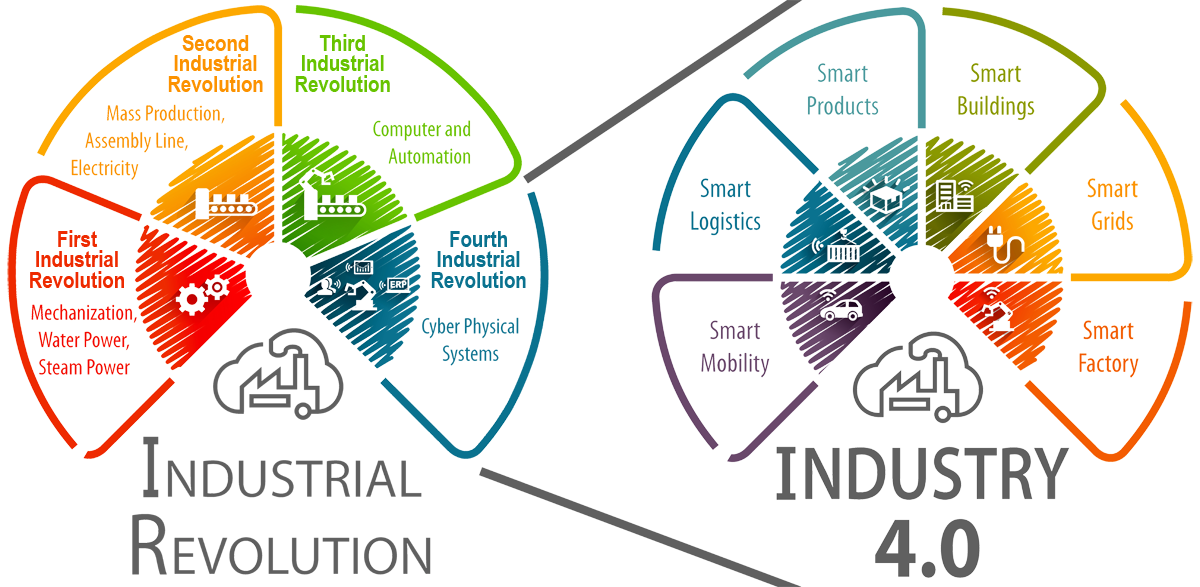We are in the middle of the fourth industrial revolution. The most political industrial revolution. Every revolution has its difficulties. In any revolution, a section of society that sees the policies of the revolution as contrary to its own interests tries to prevent the creation of a revolution. In some revolutions, the reason for opposition to the revolution is the conservative belief in the existence of objections to the principles of the revolution. But in most revolutions, conservatives, regardless of the collective interests of society, try to prevent any gradual or sudden change in order to preserve their personal and partisan interests. The closer the revolution gets to success, the more the pressure from the conservatives on the reformists increases.
Political revolutions are different from economic and technological revolutions. In political revolutions, the coordination of ideas takes place gradually and political changes take place suddenly. But in technological revolutions, both processes occur gradually, and the remnants of the conservatives continue for years after the technological revolution.
The Fourth Industrial Revolution had a more significant impact on human life than in the past. In past industrial revolutions and social revolutions, because of the slower pace and the availability of suitable alternatives to past lifestyles, conservatives suffered less and naturally showed less resistance. But the Fourth Industrial Revolution, while being faster than the past, also involves more fundamental changes.
In the Fourth Industrial Revolution, due to the use of fast processors to process real-time data as well as the rapid increase in communication speeds, changes are sudden and sometimes severe. Also, because of the kind of change that in some cases involves the replacement of human agents with computers, the Conservatives’ resistance to the Fourth Industrial Revolution is stronger. Just as in totalitarian governments, revolutionaries are referred to by words such as terrorist, saboteur, and harmful, in the Fourth Industrial Revolution, revolutionaries are addressed by conservatives, paving the way for terrorist acts, destructive and harmful.
It took centuries for political systems to decide to form alliances based on common interests to ensure better survival. Systems that later became the infrastructure for creating a new world order. Building a common monetary system for the world, building a united Security Council for the world, building a United Nations to control nations, and so on. No previous industrial revolution has the results of the Industrial Revolution challenged power structures so much. In the Fourth Industrial Revolution, the new world order is based entirely on global data analysis, collective happiness, meritocracy, and rapid change. Of course, rapid change does not mean a big change, but only small rapid change, because the speed of change in human society is not high enough to bring a person from bottom to top or from top to bottom overnight.
In current systems, capitalists have the power to control power. They can decide to hold the power despite their incompetence. They can eliminate or weaken all potential competitors. But in the new economic system, the collective system is stronger than any individual system, and the collective system certainly has the power to quickly eliminate any individual or group that acts against the collective interest. In the systems of the Fourth Industrial Revolution, the power of the hands is the result of the analysis. In data analysis, part of the input of which is always public satisfaction, the system strives to obtain public satisfaction while avoiding the social risks of a wrong collective decision.
The end of the life of totalitarian groups is near. Groups that want to legislate on the world by forming groups in which totalitarian governments are members. The human world has always been prone to wanting a god or a leader. But has not the industrial revolutions diminished this practice and shifted from leadership to the common good? Startups instead of old and repetitive companies. Digital currencies instead of the currencies of totalitarian governments. Internet, blogs, and social networks instead of state media. Investment companies instead of banks and soon all the pervasive decisions resulting from the rapid and voluminous processing of data instead of the decisions of totalitarian and erroneous human beings.
